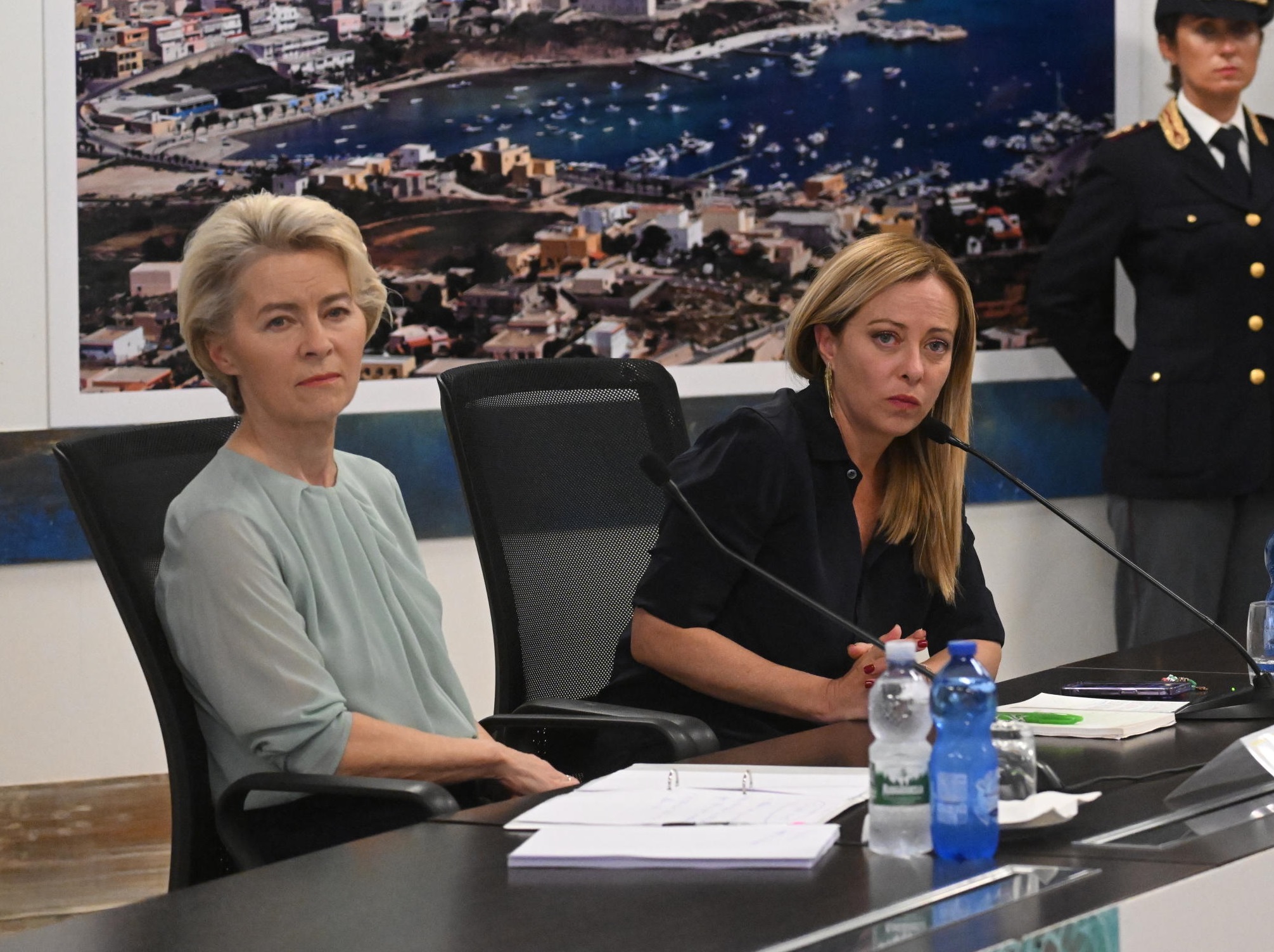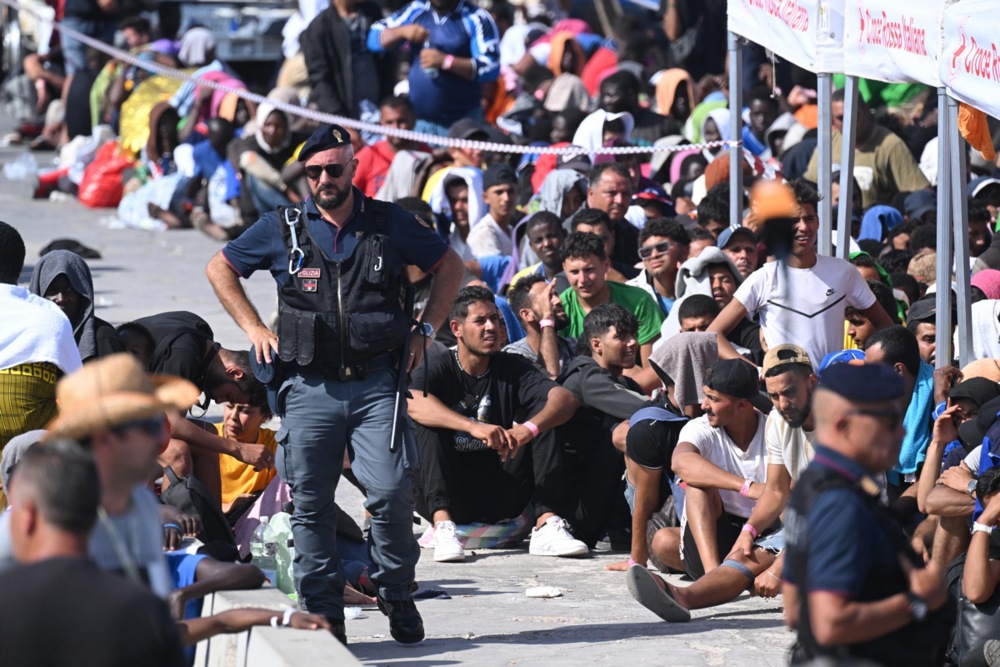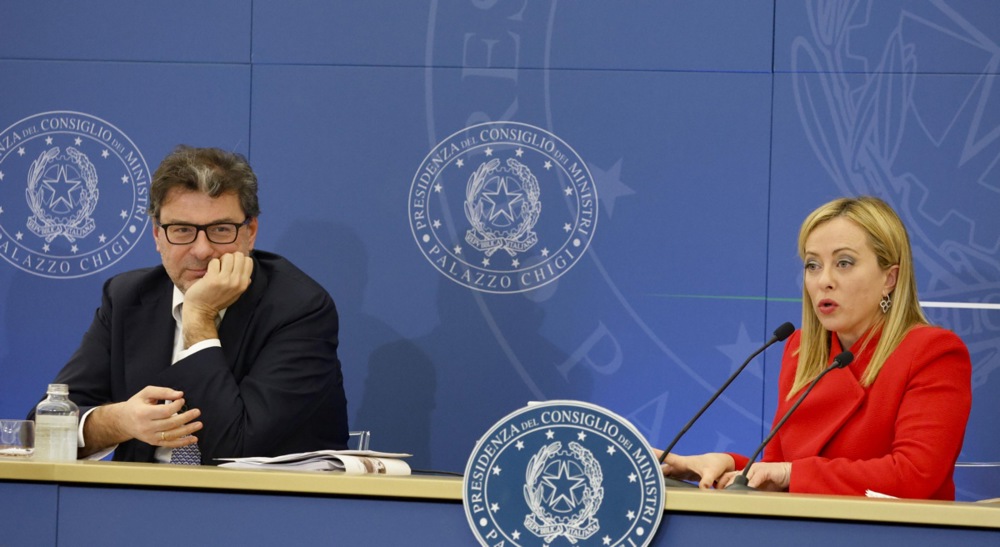Italy has recorded no GDP growth for the third quarter. The country’s high public debt and 4 per cent interest rates leave PM Giorgia Meloni limited room to boost its economy.
The stagnant economy between July and September follows a second-quarter contraction of 0.4 per cent.
“The government’s fiscal room for manoeuvre is quite limited as things stand,” Massimo Bassetti, senior economist at FocusEconomics, tells Brussels Signal.
PM Meloni is trying to boost growth by spurring Italy’s domestic consumption.
Her government plans to spend €24 billion to cut taxes on lower and middle-income earners while raising public sector salaries.
Her three-party coalition cabinet approved the moves in a new budget on 16 October.
The budget came weeks after Meloni’s government raised its budget deficit targets for 2023-2025 to 5.3 per cent of GDP from 4.5 per cent, a move raising eyebrows in both markets and the European Commission.
Italy’s public debt, now 144%, is the Eurozone’s second highest as a percentage of GDP, after only Greece.
It “is a lot but Japan with 250 per cent is keeping the lights on,” claims tech founder Daniel Vecera.
The public debt “reflects an inefficient allocation of public resources”, argues Fabrizio Macri, secretary general of the Italian chamber of commerce for Switzerland.
Large structural issues that “will need to be faced sooner or later” and which weigh on Italy’s economy include “the backwardness of the southern part of the country,” he adds.
On other structural fronts, Italy currently has “no policies to tackle the stagnant productivity and the population decline which is already impacting the labour market,” says Lorenzo Forni, an economist at the University of Padua and Prometeia Associazione, an independent Italian think tank.
There is “limited appetite for reforms” and “a growth strategy is lacking”, he adds.
On the brighter side, the country’s private debt “is among the lowest in the west,” while Italy “remains the second manufacturing economy in Europe after Germany”, Macri says.
Italy will try to move more of its public debt into private hands by using bond issues, economy minister Giancarlo Giorgetti said last Tuesday.
There are signs Meloni may be right to focus on consumer spending.
While “fixed investment and destocking dragged down the economy” in the third quarter, “consumer spending was more resilient amid a robust performance of the labour market,” said Bassetti.
Inflation fell, at 1.8 per cent in October, while year-on-year wage growth remains steady at 3%, “which translates into real wage growth”, he said.
But there is still a limit to how far Italian families can spend Italy’s way out of sluggish growth.
“Falling savings will put a lid on household spending,” said Bassetti.
Italy’s public finances received a boost in October when the European Commission finally released a long-delayed €18.5 billion payment in Italy’s EU-funded Covid recovery plan.
The payment was delayed by months, as Brussels and Rome argued over whether Italy had fulfilled a requirement to expand availability of student housing.
The next EU payout also faces delays.
“The energy crisis, exacerbated by the Ukraine conflict and the reliance on Russian gas, is the main storm,” says Saverio Canepa, a venture capital investor in Rome.
Against these shocks, “fiscal prudence and pro-market policies from the centre-right government” are the chief upsides to Italy’s outlook, says Bassetti.
Meloni also points to Italy’s short-lived governments as a contributor to its stagnant economy.
Italy had nine PMs and 12 governments from 2002 to 2022, compared with four for France and three for Germany.
In that period Italy’s economy grew by 4 per cent and France’s and Germany’s grew 20 per cent, she says.
Her cabinet approved a proposal last week to change Italy’s constitution to a directly-elected PM who would serve a five-year term.
The proposal will go to a referendum in the likely event it does not secure the support of two-thirds of parliament.
Meloni’s coalition controls 237 of 400 seats, just shy of 60 per cent.





